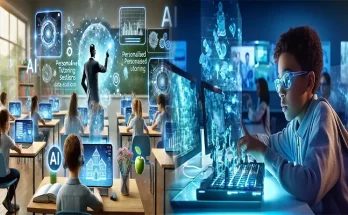As we progress further into the digital age, it has become increasingly important to reassess the way we educate future generations in order to better prepare them for the challenges and opportunities of the 21st century. The future education system is expected to exhibit several key characteristics that will revolutionize teaching and learning in innovative ways.
1. Personalized Learning:
One of the key characteristics of future education systems is the focus on personalized learning. This approach recognizes that each student has unique strengths, weaknesses, and learning styles, and tailors the educational experience to meet their individual needs. By leveraging technology such as artificial intelligence and adaptive learning platforms, educators can create customized learning paths for each student, thereby enhancing their learning outcomes.
2. Integration of Technology:
The future education system will be characterized by the widespread integration of technology into the learning process. From virtual reality simulations to online collaboration tools, technology will play a central role in enhancing the educational experience and enabling students to develop essential digital literacy skills. By embracing technology, educators can create dynamic and engaging learning environments that better prepare students for the digital economy.
3. Focus on Critical Thinking and Problem-Solving:
In the future education system, there will be a greater emphasis on developing critical thinking and problem-solving skills. With automation and artificial intelligence rapidly changing the nature of work, it is essential for students to cultivate skills that cannot be easily automated. By encouraging students to think critically, analyze information, and solve complex problems, educators can empower them to thrive in an increasingly competitive and dynamic world.
4. Lifelong Learning:
Another key characteristic of future education systems is the recognition of the importance of lifelong learning. In a rapidly evolving economy, the skills and knowledge acquired in school are unlikely to remain relevant throughout a person’s career. Therefore, the future education system will emphasize the importance of continuous learning and provide opportunities for individuals to upskill and reskill throughout their lives. This will enable individuals to adapt to changing industries and technologies and remain competitive in the workforce.
5. Emphasis on Creativity and Innovation:
Finally, future education systems will place a greater emphasis on fostering creativity and innovation among students. In a world where innovation drives progress, it is crucial for students to develop creative thinking skills and the ability to generate novel solutions to complex problems. By encouraging creativity and providing opportunities for students to explore their passions and interests, educators can nurture the next generation of innovators and entrepreneurs.
The future education system will be characterized by personalized learning, the integration of technology, a focus on critical thinking and problem-solving, an emphasis on lifelong learning, and a commitment to fostering creativity and innovation. By embracing these key characteristics, educators can create a learning environment that prepares students to succeed in an ever-changing world and thrive in the digital age.





